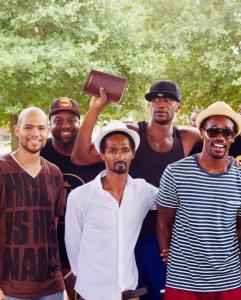3. “Christianity is organized and powerful.”
I can understand how people looking from the outside might fear the church as a united force intent on ruling the world. After all, we have hundreds of thousands of outposts on corners all over America. In reality Christianity is so splintered that it is hard to get believers together to pray much less conspire to dominate the rest of the population. Churches divide over how to respond to almost every social issue, and they disagree on the more basic question of if and how to engage culture. It gets attention when pastors have access to presidents and other politicians, but I have heard from them firsthand that talking with a leader is different from wielding authority or even influence. Most politicians meet with pastors for the same reason they shake hands with anyone else. They think a photo op with our guy will win votes.
4. “Church money is used for politics.”
Some group participants believed that churches were fronts for political campaigns. In Boston, our facilitator asked one woman, “You’re saying that churches have political action committee money that goes to the campaigns?” To which she replied, “Mm-hmm. Oh, yes.”
This is a misunderstanding of the legal boundaries churches must live within. The Internal Revenue Service says this about churches and other non-profits:
Under the Internal Revenue Code, all section 501(c)(3) organizations are absolutely prohibited from directly or indirectly participating in, or intervening in, any political campaign on behalf of (or in opposition to) any candidate for elective public office. Contributions to political campaign funds or public statements of position (verbal or written) made on behalf of the organization in favor of or in opposition to any candidate for public office clearly violate the prohibition against political campaign activity. Violating this prohibition may result in denial or revocation of tax-exempt status and the imposition of certain excise taxes.
Certain activities or expenditures may not be prohibited depending on the facts and circumstances. For example, certain voter education activities (including presenting public forums and publishing voter education guides) conducted in a non-partisan manner do not constitute prohibited political campaign activity. In addition, other activities intended to encourage people to participate in the electoral process, such as voter registration and get-out-the-vote drives, would not be prohibited political campaign activity if conducted in a non-partisan manner.
On the other hand, voter education or registration activities with evidence of bias that (a) would favor one candidate over another; (b) oppose a candidate in some manner; or (c) have the effect of favoring a candidate or group of candidates, will constitute prohibited participation or intervention.(3)
Some in our focus groups asserted that churches should be using their money to help the poor and to do good rather than spending it on issue-oriented actions or voter education. Dr. Al Mohler counters that this is an issue of free speech. For that criticism to be fair it should also be leveled at Planned Parenthood, Greenpeace, and every other 501(c)(3) group. He said in an interview I conducted with him for this project, “In reality, in this country, incorporated entities, whether profit or not-for-profit, have both the right and the responsibility to contend for their deepest beliefs in terms of public policy.” Honestly, the vast majority of pastors care far more about evangelism and in-the-trenches social action than elections. A church that panders to one political party and pushes out everyone else is the last thing they want. Nor do they want to do anything to invite criticism that detracts from their mission of preaching Christ.












